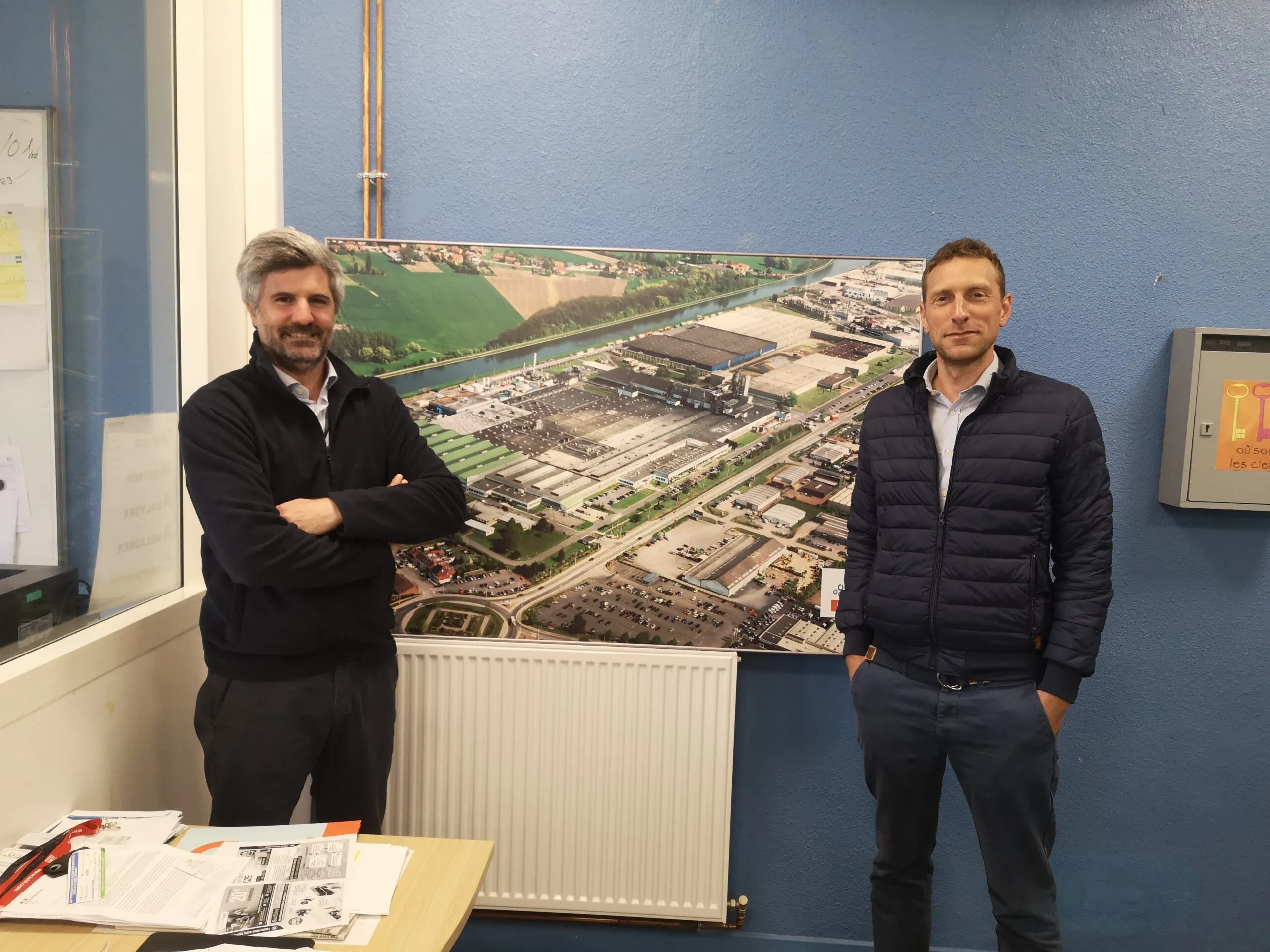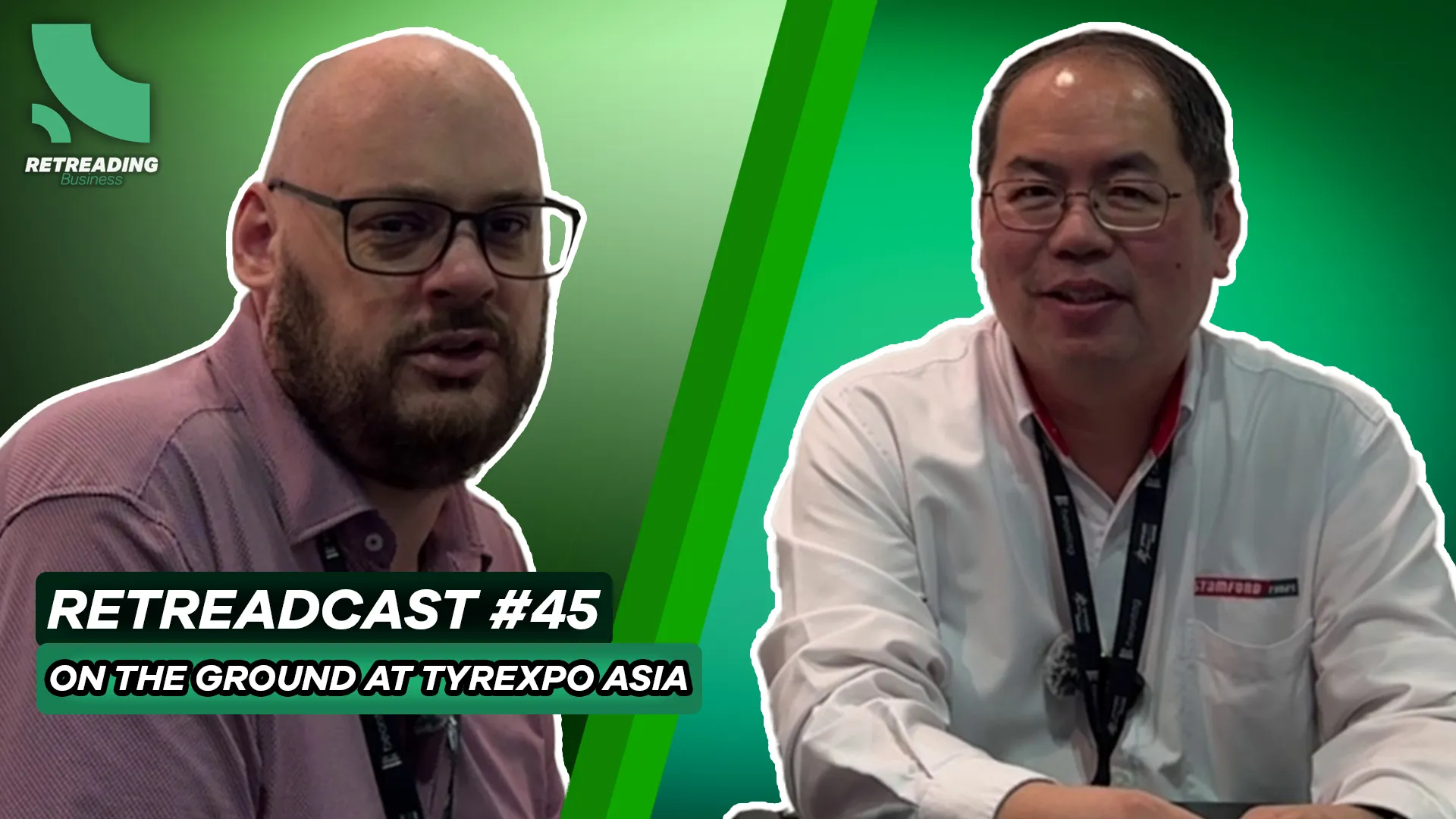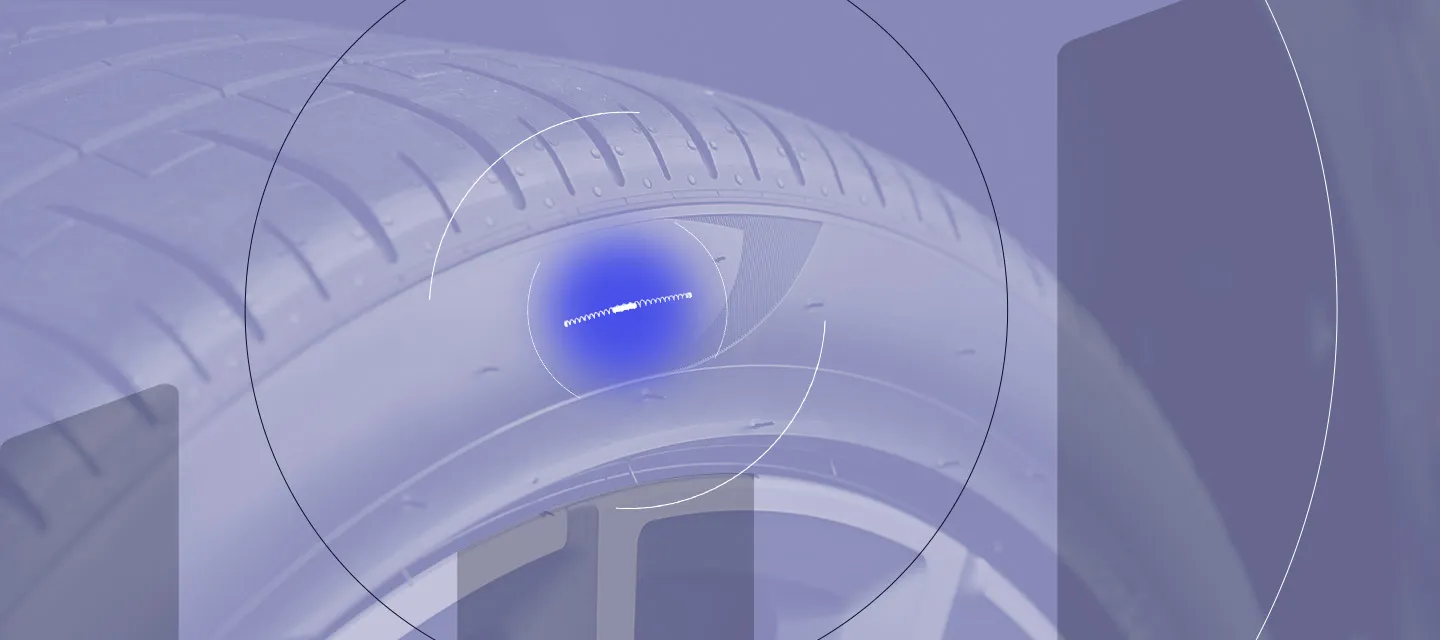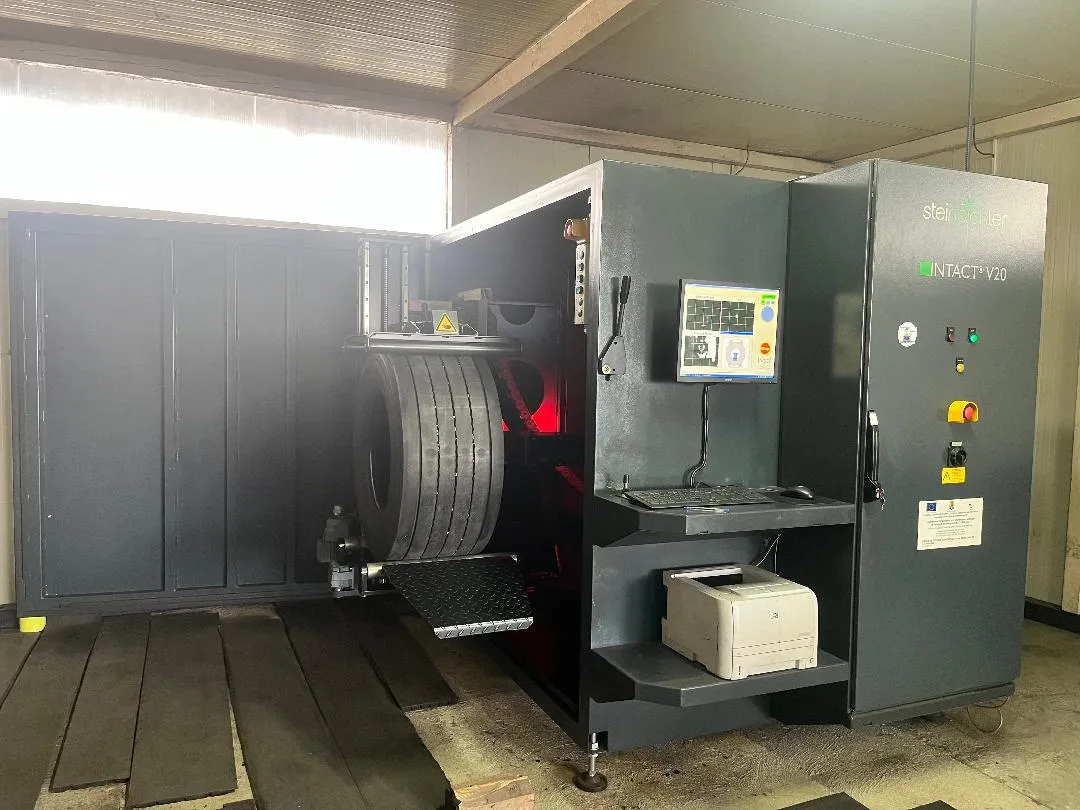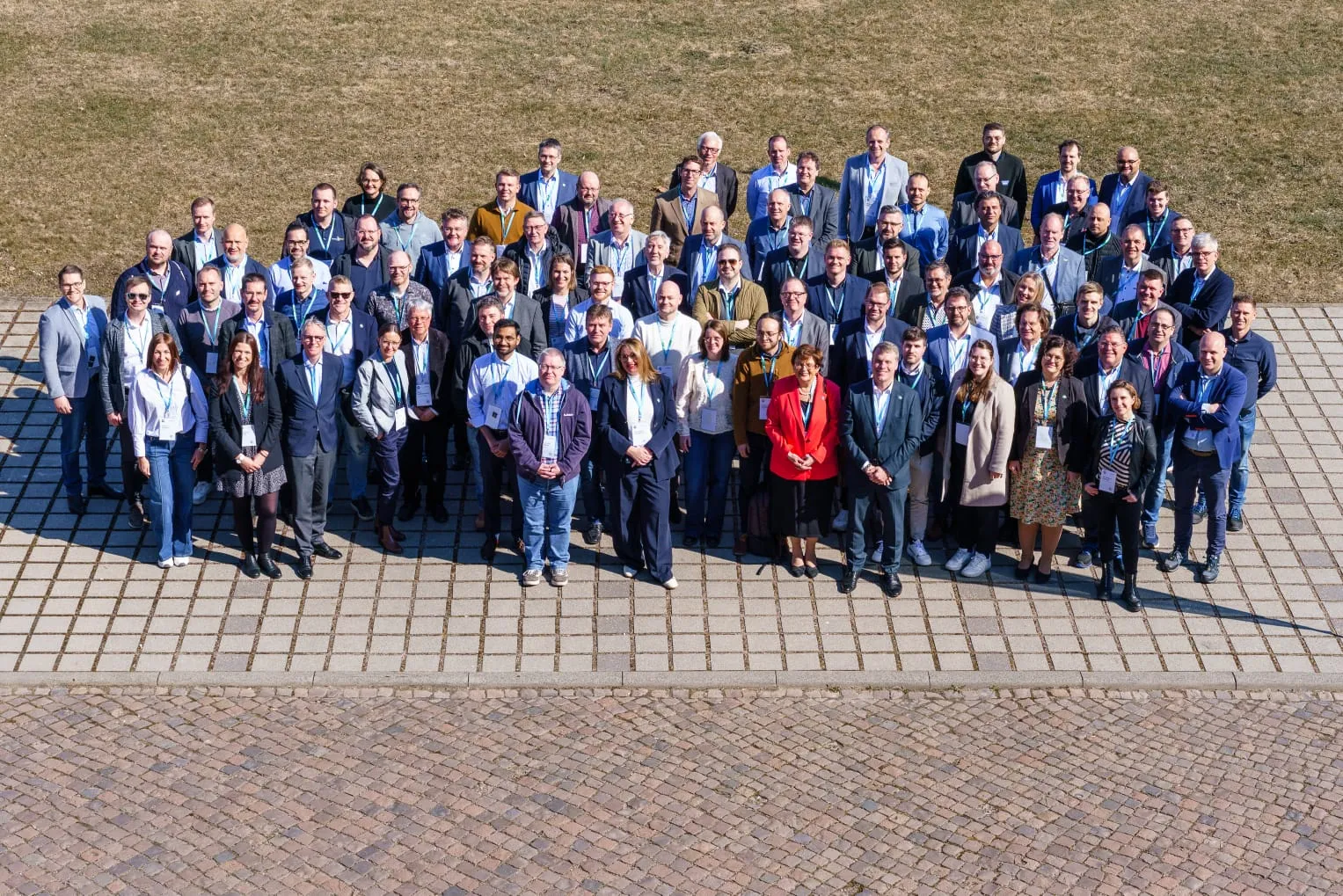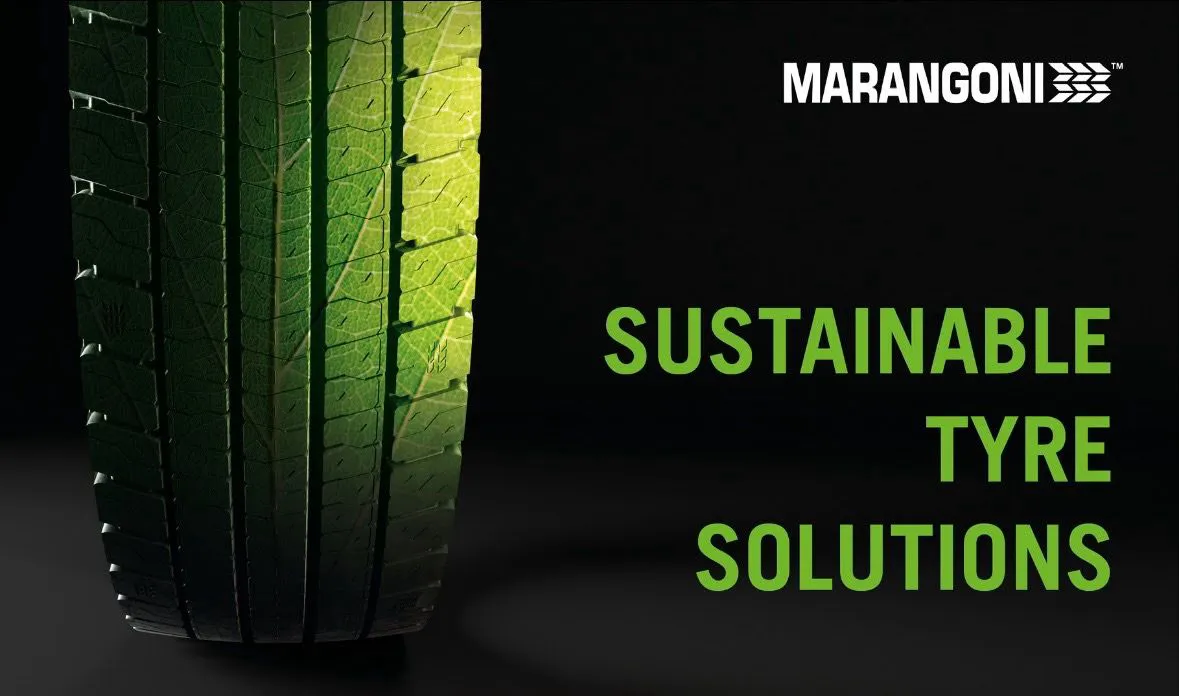The French passenger and 4×4 tyre retreader Black Star has been very much in the news over the course of the last 18 months following the announcement that the company, together with its major shareholder, Mobivia, had struck a deal with Bridgestone to develop an integrated tyre recycling ecosystem on the site of the former Bridgestone tyre plant in Béthune, France. Following the more recent launch of Black Star’s new “made-in-Béthune” retread under the brand name Leonard, David Wilson travelled to Northern France to view the transformation that has taken place in Béthune, offering a new life to the plant and new careers to a number of the ex-Bridgestone staff who worked there. What he found was a unique project which may offer a valuable insight into how decommissioned tyre factories around the world could be repurposed along circular economy lines in the future.
The French Retreader Helps Transform Ex-Bridgestone Plant
Black Star was originally founded in 1979 by Alain Rosier, and since then has operated from its factory in St Pierre de Boeuf, near Lyon, specialising in car tyres with a focus on 4×4 and off-road. Historically Rosier was a pioneer in the marketing of passenger and 4×4 retreads, and older readers with a good memory may remember the company being featured in the very first edition of Retreading Business 26 years ago.
In 2018, the company was purchased from Rosier by current CEO, Jean-Baptiste Pieret, who had identified the benefits of French-made retreads within the circular economy and saw an opportunity. Pieret had no previous knowledge of retreading (his background is in finance), but he liked Rosier’s respect for quality, told him he would take care of his life’s work, and purchased the company.
After a while he identified three major issues. The first was in casing management, where despite the well organised collection and recycling system in France, the control of casings was largely in the hands of others. The second was the structure of distribution channels, which were usually owned by tyre manufacturers, and the third issue was the need for a factory with the capacity to absorb the new segment they wanted to catch.
“We analysed the market and decided that we did not just need to develop our company, we needed to take a much wider view and create a whole ecosystem,” says Pieret.
Around this time, Pieret heard on the radio that Bridgestone was planning to close its new tyre plant in Béthune and wondered whether there might be some way in which Black Star might be able to capitalise on the know-how present among the ex-Bridgestone staff, but also realised that this was something that he was unlikely to be able to do on his own.
Alliance with Mobivia
He therefore approached Lille-based automotive retailer Mobivia, which operates 2,100 points of sales across a number of European markets with brand names such as ATU, Midas and Norauto, and invited them to become involved in the process. The result was that Mobivia acquired a 60% majority shareholding of Black Star, with Pieret retaining the remaining 40%.
Says Pieret: “We saw that Mobivia could provide both secure sales and a secure source of casings. It’s important to find a good collaborator. We have an aligned view on the long-term with regards to this project, but we know that it will take a long time.”
The third piece of the jigsaw was Bridgestone themselves, and Pieret managed to get an agreement with the tyre manufacturer occupy part of the Béthune plant, acquire and use the old equipment, rubber compounds and the old IT process. “The idea,” says Pieret, “was to re-industrialise the site, re-use the equipment, and re-use the knowledge that is there, and re-use the site.”
Black Star have now been present in Béthune since January 2022 and started to market the first Leonard branded tyres made in the plant at the start of April. During the 15-month ramp up phase the plant has been developed from a defunct new tyre plant into a modern passenger tyre retreading facility of a kind you are unlikely to see anywhere else in the world.
Black Star currently occupy around 25% of the Bridgestone plant. Most of the rest is empty, although there are a couple of smaller recycling operations in situ in different corners of the plant including a battery recycler.
Repurposing the Bridgestone Plant

The man responsible for putting together the new Black Star facility is ex-Bridgestone man, Industrial Director Bruno Lagnaux, who explained the process to us. The main point, of course, is that Black Star were not able to put the plant wherever they liked within the huge facility, due account needed to be taken of where existing machinery and pipework was located. Everything, therefore, needed to be built around the location of the existing press lines, most of which have been repurposed for the retread plant, with more available should capacity need to be increased. This is highly relevant because although the plant is currently only producing 800 tyres a day, with a short-term target of 1,000 per day, the ultimate plan is to reach 5 million tyres a year in 5 years’ time. This is more than the UK retreader, Technic was producing at the height of their success in the 1990s.
“It is important to understand the adjustment process involved in constructing the new plant,” says Lagneaux. “Everything at the plant was oversized in terms of utilities – there was a huge steam system – which was adapted to the needs of the much larger new tyre plant. We have a long way to go to change to the new production.”
The next task facing Lagneaux was to repurpose as much of the existing equipment at the plant as possible. An extruder has been repurposed to create made to measure uncured tread strips for each tyre. This in itself is interesting as one might have expected the tyres to be built by the strip-winding process, but no, the process is more akin to a new tyre manufacturing plant. This, says Pieret, turns out not to have been an issue as tread strips are also used at Black Star’s other plant at St Pierre de Boeuf.
Also repurposed have been two VMI tyre builders which are used to build the new retreaded tyres. Other equipment repurposed elsewhere in the plant include a TW Micro-poise balancer, a uniformity tester and a shearography machine used in the casing pre-sorting stage.
New Investments
Of course, in addition to the repurposing of existing machinery, the planning of the new plant also involved investment in new equipment and facilities. The most extensive of these is the casing reception and inspection area.
“Casings are important,” explains Lagneaux. “We have a long way to go and are working with presorted casings at the moment, but we want to use tyres straight from the retailer. When we do that, the number of rejections will be higher, so we need to be more developed.”
Black Star currently scrap 80% of their incoming casings and are gradually becoming more automated and improving their processes. As already indicated, company has reutilised some Bridgestone machinery in the quality control process. However, a key investment has been an MTP_TRI sorting machine from Regom, which uses Artificial Intelligence (AI) to sort tyres according to brand, size and tread depth.
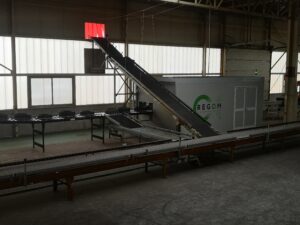
In addition to this, Regom, who are, currently building a new sorting site based in Burgundy with lean processes to optimise sorting to its utmost, say the MTP-TRI is able to maximise the efficiency of the used tyre valorisation process by identifying non-reusable tyres and automatically removing up between 30-40% of them from the process depending on the selection criteria entered into the machine.
Currently scrap from the factory is handled by IWIP, Mobivia’s waste management department, but Black Star is actively looking at opportunities in tyre collection, granulation, pyrolysis etc. with a view to closing the loop as far as their tyre scrap is concerned.
Other areas where Black Star has invested include the creation of a buffing department to include three new TRM Eagle P 2004 buffers, the purchase of two Zeiss Intact shearography machines for post-production testing and the creation of storage departments for casings and finished goods, which have necessitated the construction of a firewall within the factory to separate storage from production. The company currently keeps around 50,000 premium casings in stock plus around 8,000 finished Leonard branded retreads.
Marketing the Leonard Brand
The other key member of member of Pieret’s team is Managing Director Laurent Cabassu, who joined the company last September from Pirelli to lead development of the Black Star project as the new tyres enter the marketplace.
The new brand, Leonard, was launched at the start of April at the Drive to Zero exhibition in Paris, and we spoke to Cabassu about the concept of the brand and plans for developing the business in the future.
The first thing to point out is that he historical Black Star plant at St Pierre de Boeuf will operate separately from the Béthune plant and will continue to manufacture the Black Star branded niche 4×4 product for which the company is well-known at that location, although it will also act as a centre for collection and distribution for the whole company, covering the southern part of France. The new plant in Béthune, meanwhile, will produce the Leonard brand, which will be a mass market PCR, summer tyre and 4×4 tyre.
We asked Cabassu about the unusual choice of brand name for the new tyre, which had been chosen to evoke the spirit of Leonardo da Vinci in terms of associating the brand with a spirit of change and innovation. “It is true that there were some raised eyebrows when the brand name was first mentioned,” says Cabassu, “but we wanted to be different from everybody else. The concept has been well received and we are now pushing forward speaking to lots of new contacts. We will be happy if the tyre manufacturers come on board with the programme, and we are speaking with lots of them too.”
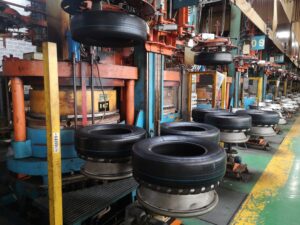
According to Cabassu, the company is being careful to focus on a step-by-step expansion approach and is starting by capitalising on the Mobivia network. Indeed, Cabassu recognises the possibility of selling through the Mobivia network in Spain, Italy and Germany.
“We will look to work across Europe, also where Mobivia is present, but this is not a key priority,” he says. “We will listen to opportunities and take them as they come.” In addition, says Cabassu, the company is talking to major retail networks such as Point S, Speedy, First Stop and Euromaster.
So how can we expect the Black Star project to develop in the future?
“Developing this concept is a big challenge,” says Jean-Baptiste Pieret. “We need to find a smart way to move forward. We’re not the answer – we’re part of the answer. It won’t be easy, but if we put quality and safety first, it can be done.
If they can make the ecosystem at Bethune work, then Pieret believes they will eventually have the opportunity to do the same thing with other premium tyre plants that are closing down, but the idea would be to make sure to get to them before the end of activity. However, he is keen to point out that this is not a priority at present.
“The main thing is to have good team and good shareholders who share the vision of pushing eco-friendly products,” he says. “The collective adventure is important, and the diversity in our organisation is strong. We don’t have all the answers, but we will find a way forward.”

